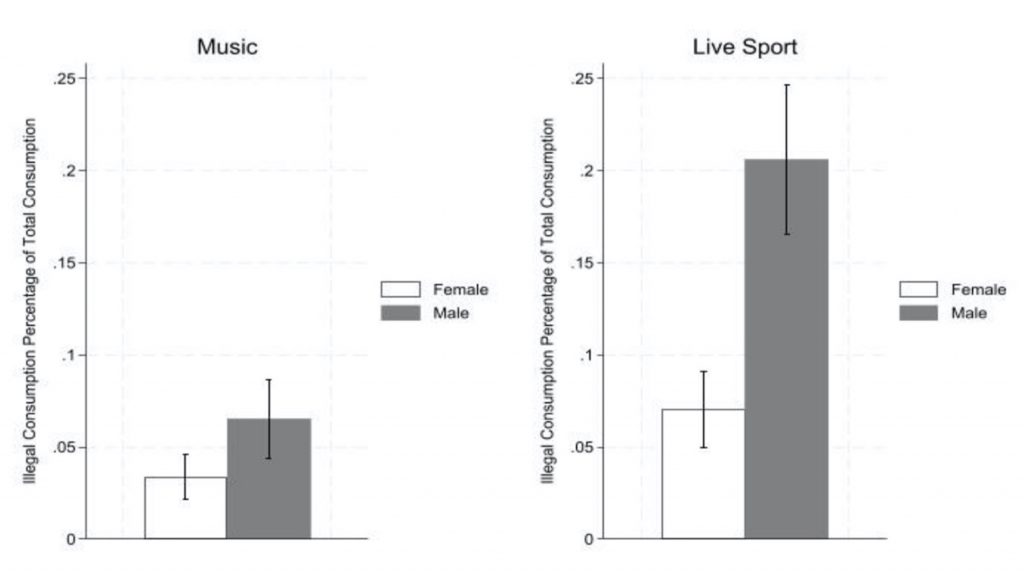Researchers explored the gender differences in illegal consumption, when calculated as percentage of total consumption by category (music and live sports). The gender difference was significant for live sports, with men consuming 21% of their total live sport consumption from illegal sites compared to women, with 8%. There also was a gender difference in illegal music consumption; 7% for men and 3% for women.
The study by the University of Portsmouth looked at two social influencers: perceived social risk (the idea that piracy might damage your reputation) and a social norms intervention (correcting false assumptions of the piracy of others) – highlighting the difference between men and women.
“Legal threats have limited impact unless they are effectively followed through, and norm-based approaches can backfire,” said Dr. Kate Whitman, Faculty of Business and Law at the University of Portsmouth in the UK. “But framing piracy as something that damages your reputation, especially in male-dominated environments like sports, could prove far more powerful,” she said.

Why it matters
“Legal threats have limited impact unless they are effectively followed through, and norm-based approaches can backfire,” said Dr Whitman. “But framing piracy as something that damages your reputation, especially in male-dominated environments like sports, could prove far more powerful.”
The researchers concluded that anti-piracy messaging needs to be carefully considered. Communications emphasising social norms may serve to worsen the problem, particularly among men. Instead, interventions should highlight the reputational costs of piracy – portraying it as low-status, socially embarrassing, or even a marker of financial weakness.
The authors urge policymakers to be aware. Without intervention, communications that hint that piracy is “normal” risk compounding the problem. Instead, future strategies need to focus on reputation, not legality, as the most effective deterrent.
Further reading
The rising tide of piracy: The influence of social roles, risks and norms on illegal consumption. Research report (PDF). Published September 2025. Written by Dr Kate Whitman, Faculty of Business and Law, and Prof. Joe Cox, School of Accounting, Economics and Finance. University of Portsmouth UK
Norms backfire, but social stigma shows promise against sports piracy. Press release. October 1, 2025. University of Portsmouth UK











